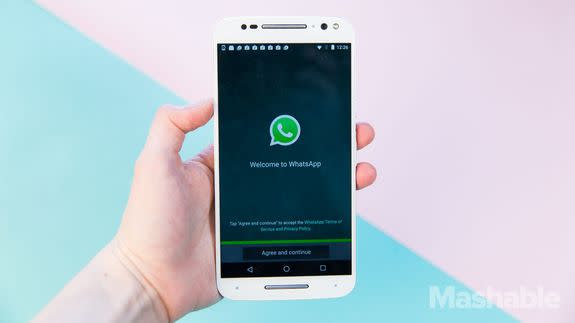WhatsApp is back in Brazil after yet another ban

WhatsApp is back online in Brazil following a court ruling that suspended the service for several hours Tuesday, marking the third time in less than a year the Facebook-owned app has been banned and then reinstated by the country's judicial system.
The latest ban, stemming from a Rio de Janeiro judge's ruling, was once again over the app's use of encryption.
The judge ordered WhatsApp's suspension after the company failed to provide the contents of encrypted messages related to a criminal case, Reuters reported. The country's Supreme Court later reinstated the service, saying the lower court's decision was "scarcely reasonable or proportional," according to the report.
The messaging app was previously banned in Brazil in December and May after similar rulings in other criminal cases.
After it was banned yet again on Tuesday, WhatsApp CEO Jan Koum called the Brazilian court's ruling "shocking" in a Facebook post.
"It's shocking that less than two months after Brazilian people and lawmakers loudly rejected blocks of services like WhatsApp, history is repeating itself," Koum wrote. "As before, millions of people are cut off from friends, loved ones, customers, and colleagues today, simply because we are being asked for information we don't have."
WhatsApp strengthened its security earlier this year when it rolled out end-to-end encryption on all of its apps. Koum, who has been a vocal supporter of encryption, said at the time that encryption is "one of the most important tools governments, companies, and individuals have to promote safety and security in the new digital age."
The WhatsApp cofounder was also among the first high-profile CEOs in Silicon Valley to come out in support of Apple in its battle with the FBI over its use of encryption earlier this year.
Once again, rival messaging service Telegram appeared to be taking in many WhatsApp users during the period the app was offline.
